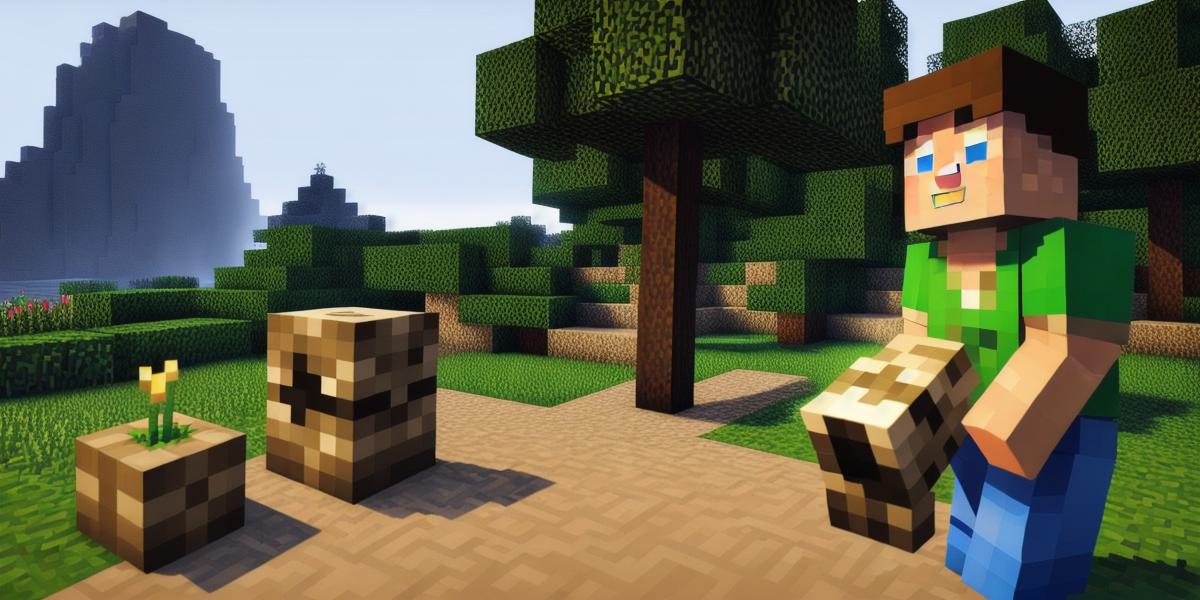Debunking Myths: Hosting a Minecraft Server for Programmers

Internet Usage has become an integral part of our daily lives, and this is particularly true for programmers who rely heavily on technology to work and collaborate with others. One popular topic that often comes up in discussions about internet usage is hosting a Minecraft server. While there are many myths surrounding this subject, it’s essential to separate fact from fiction to ensure the best possible experience when hosting a Minecraft server for programmers.
Myth 1: Hosting a Minecraft server requires expensive hardware and high bandwidth.
Fact: This is one of the most common misconceptions about hosting a Minecraft server. While it’s true that more powerful hardware and higher bandwidth can improve performance, it’s not always necessary. Many Minecraft servers can run smoothly on inexpensive dedicated servers or even cloud-based services like Amazon Web Services (AWS). Additionally, many Minecraft servers can operate on lower bandwidth connections, making them accessible to programmers with limited internet resources.
Myth 2: Hosting a Minecraft server is only for experienced programmers.
Fact: While hosting a Minecraft server does require some technical knowledge, it’s not necessarily only for experienced programmers. Many Minecraft servers come with user-friendly interfaces and tools that make it easy to set up and manage the server without extensive technical expertise. Additionally, there are many online resources available that can provide step-by-step guidance on how to host a Minecraft server, making it accessible to programmers of all skill levels.
Myth 3: Hosting a Minecraft server is only for gaming purposes.
Fact: While hosting a Minecraft server is often associated with gaming, it has many practical applications for programmers as well. For example, Minecraft servers can be used for testing and debugging code, collaborating with other programmers, and even developing new software. Additionally, Minecraft servers can be used to simulate complex systems and test different scenarios, making them an invaluable tool for programmers working on projects that require simulation or modeling.
Case Study:
John is a programmer who works from home and often collaborates with other programmers on his projects. He recently decided to host a Minecraft server to facilitate collaboration with his team members. John found that hosting the server was surprisingly easy, and he was able to set it up in just a few hours using an online guide. Once the server was up and running, John and his team were able to collaborate on their projects in real-time, which greatly increased productivity and efficiency.
Conclusion:
Hosting a Minecraft server is not only accessible to programmers of all skill levels but also has many practical applications beyond gaming. Whether you’re testing code, collaborating with other programmers, or developing new software, hosting a Minecraft server can be an invaluable tool for any programmer looking to improve their productivity and efficiency. So don’t let the myths surrounding hosting a Minecraft server hold you back – give it a try today and see how it can benefit your work!
FAQs:
- What hardware do I need to host a Minecraft server?
It depends on the number of players and the complexity of the server, but many Minecraft servers can run smoothly on inexpensive dedicated servers or cloud-based services like AWS.
- Can I host a Minecraft server on a low bandwidth connection?
Yes, many Minecraft servers can operate on lower bandwidth connections, making them accessible to programmers with limited internet resources.
- What are some practical applications for hosting a Minecraft server?
Minecraft servers can be used for testing and debugging code, collaborating with other programmers, developing new software, and simulating complex systems and testing different scenarios.








